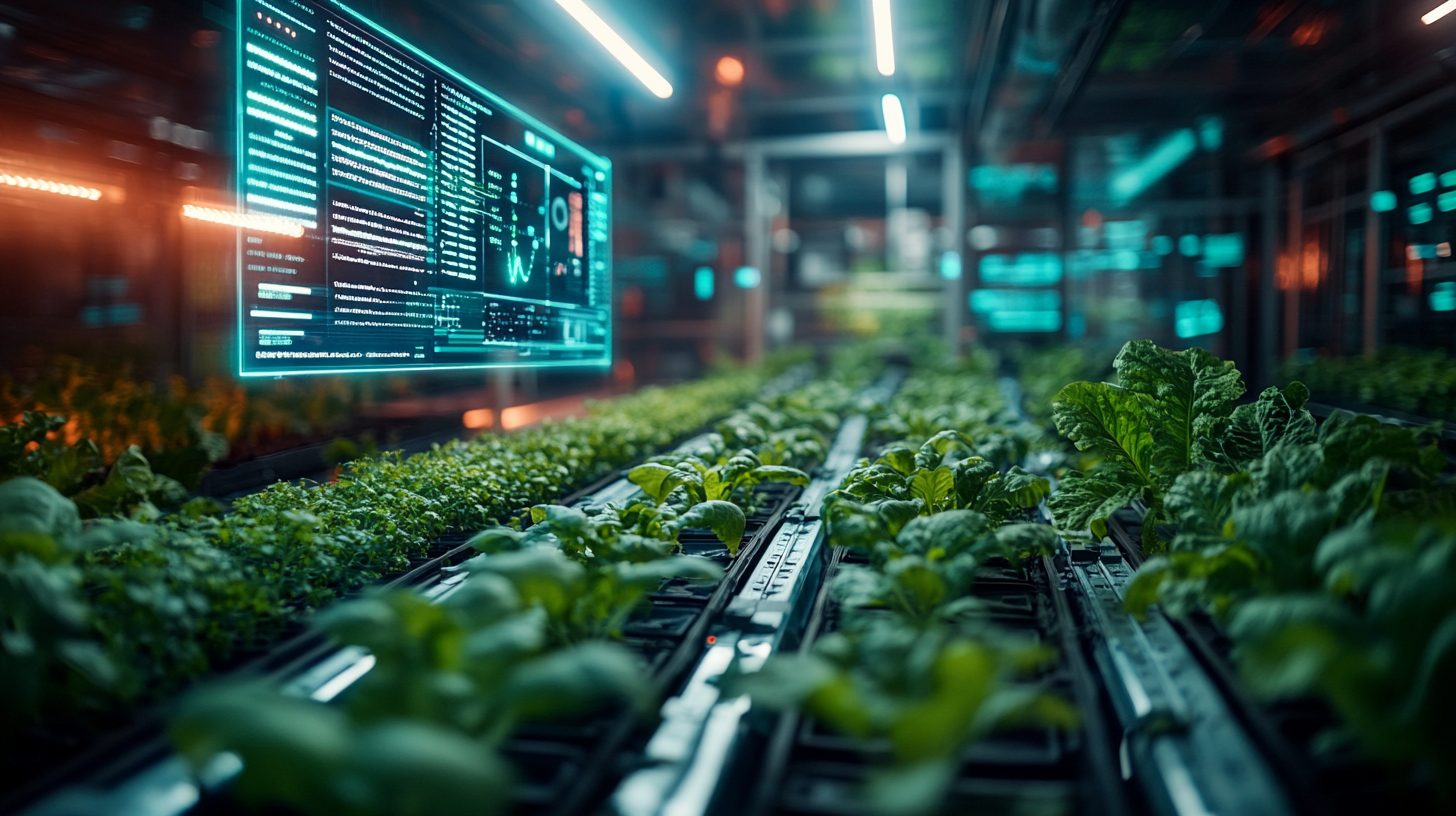
The agricultural landscape has always been in flux , transforming with every technological innovation that humanity introduces. One of the most groundbreaking developments in recent years has been the integration of Artificial Intelligence (AI) into high-tech soilless farms. These advanced agricultural systems represent a radical departure from traditional farming methods, promising to redefine how we grow our food.
Understanding High-Tech Soilless AI-Controlled Farms
Soilless farming, as the name suggests, is a method of growing plants without using traditional soil. Instead, plants derive their nutrients from solutions or other substrates like coconut coir, perlite, or rock wool. The most well-known types of soilless farming include hydroponics (growing plants in nutrient-rich water) and aeroponics (growing plants in air or mist environments). What makes these systems "high-tech" is the integration of advanced technologies that monitor and control the growth environment.
The Role of AI in Soilless Farms
AI plays a pivotal role in these high-tech setups. By utilizing sensors and advanced algorithms, AI systems can:
Monitor Plant Health: Using cameras and spectral analysis, AI can detect diseases, nutritional deficiencies, and other plant health issues long before the human eye can.
Optimize Growth Conditions: AI systems can adjust light, temperature, humidity, and nutrient levels in real-time to provide the optimal environment for each specific crop.
Predict Harvest Times: By analyzing plant growth rates and other factors, AI can accurately predict the best time to harvest for maximum yield and quality.
- Reduce Waste: AI can optimize water and nutrient usage, ensuring plants get precisely what they need and minimizing waste.

Benefits of AI-Controlled Soilless Farms
AI-controlled soilless farms offer numerous benefits over traditional farming methods. These include:
Consistent Quality and Yield
Thanks to the controlled environment and AI's precision, crops can be grown with consistent quality year-round, irrespective of external weather conditions. This consistency ensures that consumers receive high-quality produce regardless of seasonal variations or climate changes.
Resource Efficiency
These systems are designed to use resources more efficiently, which can lead to significant water and nutrient savings. Traditional farming often involves overuse of water and fertilizers, leading to runoff and environmental degradation. In contrast, AI-controlled soilless farms apply water and nutrients with pinpoint accuracy, reducing waste and conserving valuable resources.
Scalability and Flexibility
AI-controlled soilless farms can be set up in various environments, from urban rooftops to industrial warehouses, making local food production more feasible. This flexibility allows for the establishment of farms in areas where traditional agriculture is not possible, such as deserts, arid regions, or densely populated urban centers. By bringing food production closer to consumers, these farms can reduce transportation costs and the associated carbon footprint.
The Technology Behind AI and Soilless Farms
Sensors and Data Collection
The backbone of AI-controlled soilless farms is the network of sensors used to collect data. These sensors measure a wide range of parameters, including temperature, humidity, light intensity, and nutrient levels. The data collected is then fed into AI algorithms that analyze it to make informed decisions about the optimal conditions for plant growth.
Machine Learning and Predictive Analytics
Machine learning, a subset of AI, is used to develop predictive models that anticipate plant needs and growth patterns. By analyzing historical data and identifying trends, these models can predict when plants will require specific nutrients or adjustments in their environment. This predictive capability allows farmers to address potential issues before they impact crop yield and quality.
Automation and Robotics
In addition to data analysis, AI-controlled soilless farms often employ automation and robotics to perform tasks such as planting, harvesting, and maintenance. These automated systems can operate with a high degree of precision and efficiency, reducing the need for manual labor and further enhancing the consistency and quality of the produce.

Environmental and Economic Impact
Reducing Environmental Footprint
AI-controlled farms have the potential to significantly reduce the environmental footprint of agriculture. Traditional farming practices often lead to soil degradation, water pollution, and loss of biodiversity. In contrast, soilless farming eliminates the need for soil, reduces water usage, and minimizes the use of chemical fertilizers and pesticides. This reduction in resource use and pollution can help mitigate the environmental impact of food production.
Economic Benefits
The economic benefits of AI-controlled farms are also significant. By optimizing resource use and reducing waste, these systems can lower production costs and increase profitability. Additionally, the ability to grow high-quality produce year-round can create new market opportunities and increase the competitiveness of local farmers.
Looking Forward
As the global population continues to rise and arable land becomes scarcer, the need for innovative agricultural solutions becomes more pressing. AI-controlled high-tech soilless farms could be the answer to some of these challenges. By leveraging the power of technology and AI, we have the potential to usher in a new era of sustainable, efficient, and local food production.
The future of agriculture lies in the ability to adapt and innovate. AI-controlled farms represent a significant step forward in this evolution, offering a promising solution to the challenges of modern agriculture. By continuing to develop and refine these technologies, we can create a more sustainable and resilient food system for future generations.
In conclusion, the integration of AI into high-tech soilless farms marks a revolutionary shift in agricultural practices. These systems offer numerous benefits, including consistent quality and yield, resource efficiency, scalability, and environmental sustainability. While there are challenges to overcome, the potential of AI-controlled farms to transform food production is undeniable. As we move forward, continued innovation and investment in these technologies will be essential to meet the growing demands of our global population and ensure a secure and sustainable food future.

Are your products organic?
Yes, all products are organically grown and processed.
What is freeze-drying?
It's a process that removes 97% of water from fruits while preserving essential nutrients and minerals.
Comments (0)
Back to Soilless Farming